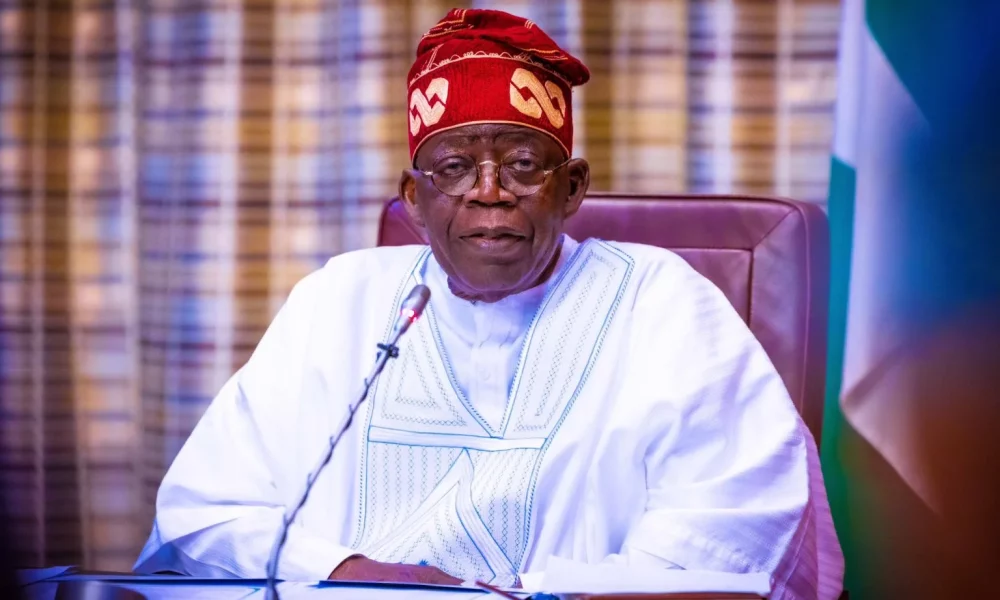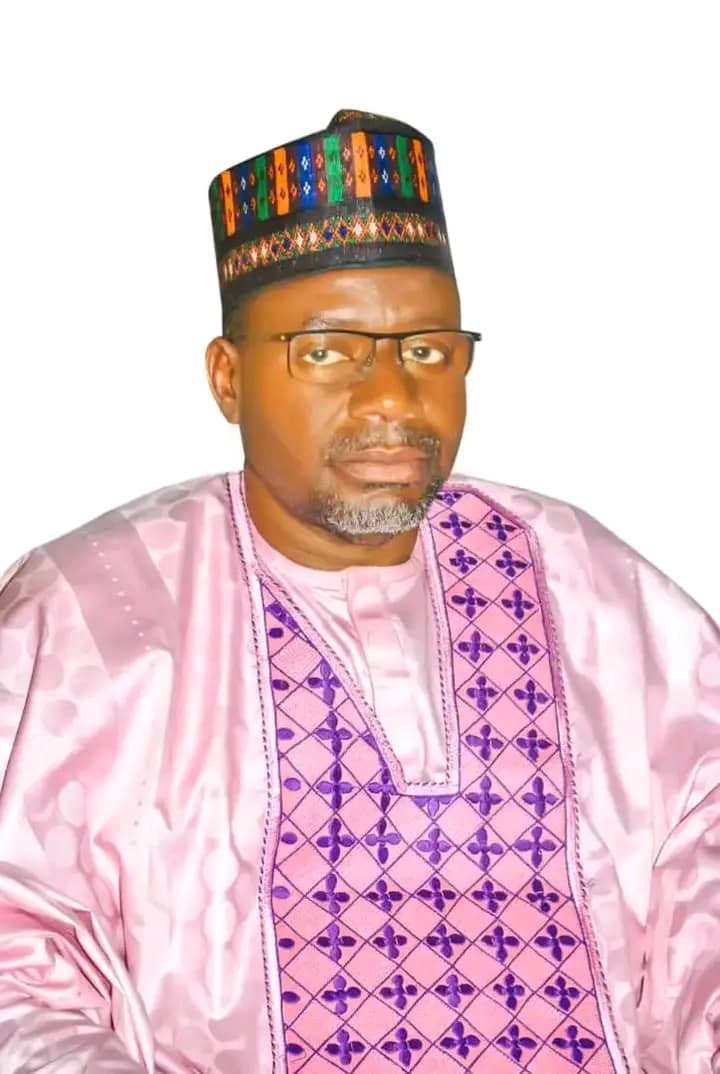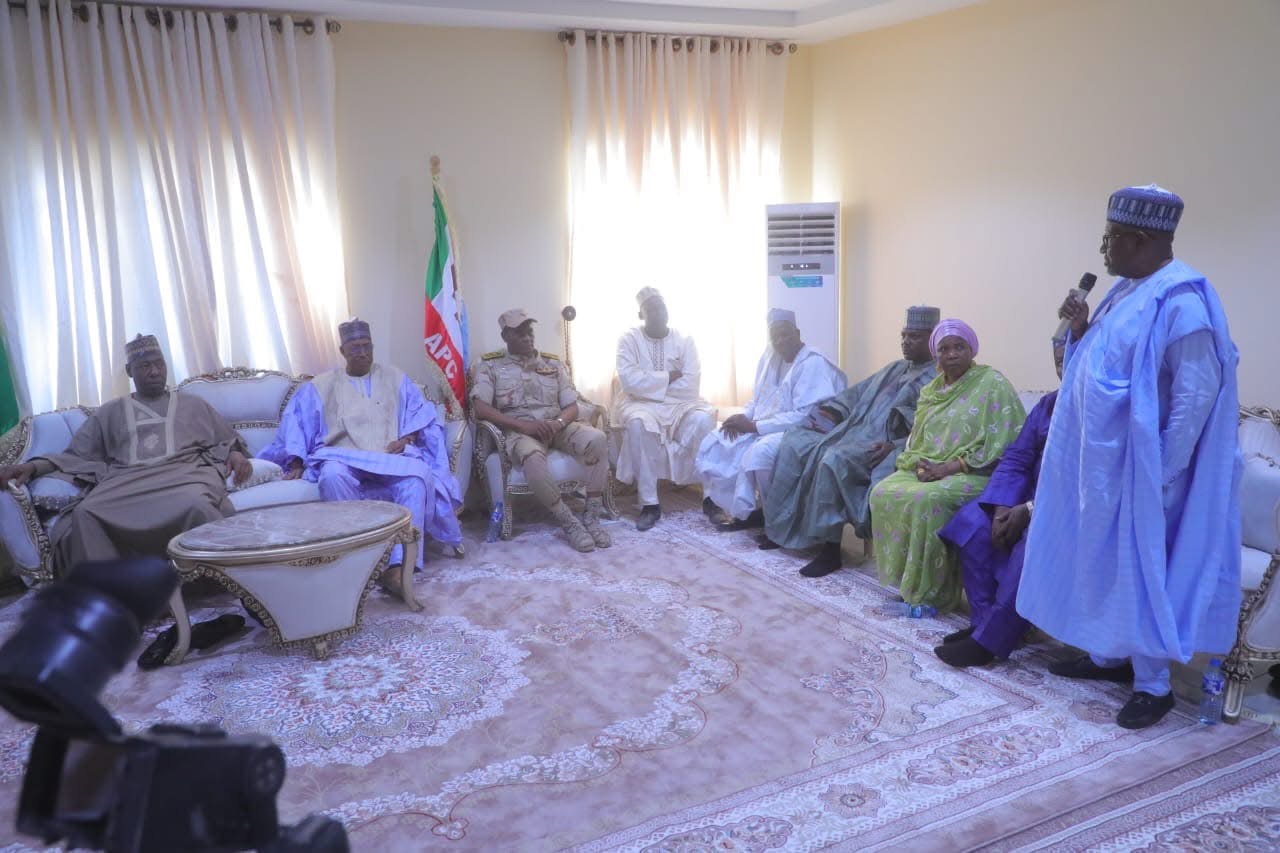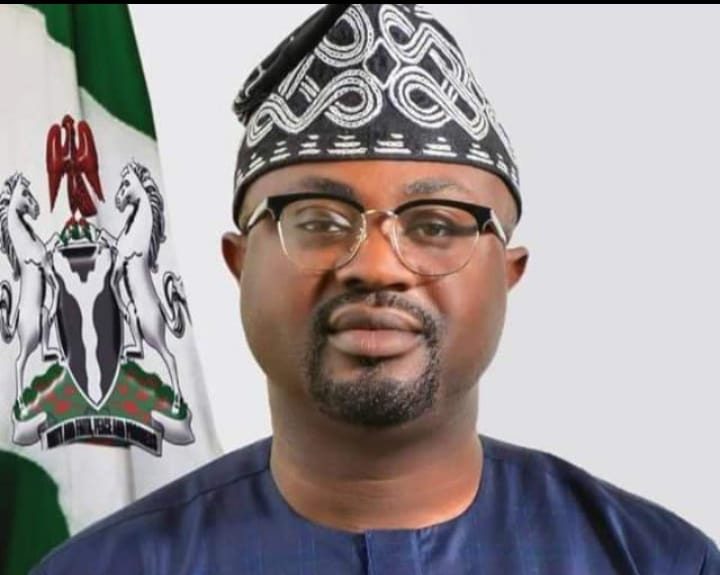Developmental
Nigerian Youths will unleash their Resourcefulness on the World – VP Osibanjo

With the energy of the youth, the resilience of the private sector combined with governments implementing the right policies, Nigeria will make the desired progress despite the challenges in the economy, according to Vice President Yemi Osinbajo, SAN.
Prof. Osinbajo stated this Tuesday while rounding up his thoughts during an interaction at the closing of the 27th Nigerian Economic Summit in Abuja (NES #27) themed: Securing Our Future, the Fierce Urgency of Now.
According to the Vice President who also praised the strong will of the average Nigerian, “we can see that there is a will to do things, there is energy, resilience, resourcefulness. My take is that this country is one that is waiting to happen and it will happen. It will take all of our resources, and all of our effort to make it happen, and it will happen.”
He noted that “we must focus on what this country offers in terms of all the resources that we have, human, natural and everything that we have – the will, the energy, the innovativeness of the Nigerian.
“This sort of country, a country with all that we have, can simply not fail, and it is only a matter of getting things right and moving a few things around, and we will be well on the way to the kind of progress that we ought to experience as a country.”
Prof. Osinbajo explained that despite the limitations caused by the COVID-19 pandemic among other challenges, the government was working hard to address defects in the system, and noted that recent results were indicative of recovery across different sectors of the economy.
His words: “I believe very strongly that all of the great ideas that we have, the young people waiting to unleash their energy and resourcefulness on the world, all of those are just waiting to happen.
“I believe very strongly that this country affords us the opportunity and the space to be able to achieve great things. We should keep our focus.”
He further noted that the Buhari administration was ramping up efforts in different sectors to improve development and the economy.
While urging state governments to do more, especially in the area of education, the VP stated that “we must emphasize Science, Technology, Engineering, Arts and Maths (STEAM). This is an area where a curriculum is being redeveloped to accommodate that.
“It is important to note that basic education – primary and secondary education is under the control of the states. Federal Government does not handle primary or secondary education. Yes, we do have some unity schools, but these things are really the business of the states.”
Citing the work being done by the National Economic Council in developing the country’s human capital, the VP said, “at the level of the NEC, which I have the privilege of chairing, one of the things that we have tried to do with the whole human capital development space, we have a whole dashboard where we are looking at performances in the states.
“What the Federal Government tries to do is set the standards and then support in whatever way possible. But it is a huge enterprise and we are also finding a lot of entrepreneurial activities around it. We must just keep our focus on what we need to do namely, the curricular and teacher training.”
Prof. Osinbajo restated the commitment of the Buhari administration in ensuring inclusive growth through education leveraging technology, noting that the overriding theme for the government was value addition.
He said, “I am a firm believer in the fact that government’s business must be to just take care of the macro issues – access to capital and good training. And we tried that with our N-Power programme where we gave tablets to beneficiaries and those tablets were loaded with material for entrepreneurial training etc. Many of them were able to benefit from this initiative. The opportunities are huge for training and getting a lot of the young people into that space.”
Prof. Osinbajo noted that the Buhari administration has prioritized investment in social amenities, social welfare, and the development of the health sector.
He said that “social amenities are crucial, not just for attracting investment, but even for the standard of living of people who live there.”
The VP stated the importance of the national health insurance scheme, noting that “without compulsory health insurance, we simply cannot bring together the resources that are required to provide decent healthcare for 200 million people, growing by 5 million every year… I think the game-changer is health insurance.”
On developing the health sector and government’s ongoing reforms, the VP said, “We are at a point now with the healthcare reform committee, which I have the privilege of chairing, where we are looking at all these options. We are trying to see in what ways we can ensure that this will work.
“So, there are huge revolutionary changes that need to be made and I believe that they are entirely possible. And we are at a point where these things are accessible to us, with time we can do these things, I am certainly looking forward to some of the reforms that are possible.
Prof. Osinbajo however commended the successes so far recorded in public health in the country.
According to him “we have been able to set a standard for public health and that was seen in our COVID-19 response. Our response to the pandemic, a major public health challenge was probably one of the best anywhere in the world. Just in terms of response.”
Continuing, the VP explained that “we have had years of developing a public health system. We are familiar with how to deal with Lassa Fever, Malaria, Polio, we have done immunization on the scale, so we have a lot of experienced hands in doing so. But clinical health is an area where we have a deficiency.”
His words: “just a few days ago, we were opening a hospital in Lagos. What this hospital was able to show us is first of all the sheer number of doctors in the diaspora who are experts in their own fields and are coming home to work. The doctor who comes home to work is still available for work elsewhere.
“Even the way medical services are delivered today is so radically different from the way it used to be. It is possible now to get the best of help and while we were there in one theatre, we were able to communicate with some other expert who was in the US and was able to talk to us. So, even telemedicine is possible, it is available, and there is a lot that we can do.”
In addition, the Vice President highlighted the government’s efforts in creating the environment for the growth of technology and creative industry, noting the need for more investment in these areas.
“I spoke earlier about the Technology and Creativity Advisory Group and the creative aspect of it is the Nollywood and entertainment and that whole industry, and there is support in terms of funding. But what I have found is (about) the infrastructure that is required.
“There is a major project that is going on at the National Theatre in Lagos, which is funded by the CBN and the banks and this is devoted entirely to creativity. This is a massive area where we certainly need a lot more investment.
The Vice President added that with regards to the 4th Industrial revolution, Nigeria “is in a good place leveraging technology and the creativity of the youth”, but noted that a lot could be done to achieve more results.
“We have the best advantage which is that we have young people, the majority of our population over 60 per cent are under 25, and they are energetic, creative and are ready to go. What we need to do is to see how we can support them, access to capital, training, and all of that,” he said.
Commending the contributions of the private sector, the VP noted that “the private sector in Nigeria (in terms of resilience and coping with challenges), has done very well, with what we have learned, even coping with the post-pandemic issues (business after the pandemic), the private sector has done well.”
“For example, transport went down 49%, and now they are back with 77%. The construction sector went down by almost 40%, and has returned to a much more modest positive,” Prof. Osinbajo explained.
On Climate Change, the VP said Nigeria’s position must be re-echoed at all forums of negotiations, and that the emphasis should be on fairness, justice in the transition from gas.
At the closing event of the 27th Nigerian Economic Summit, the Vice President engaged in a “Conversation” with Mr Kyari Bukar, a Director of the NESG, and Mrs Chichi Aniagolu-Okoye, the Country Director of the Ford Foundation in Nigeria.
Developmental
Tinubu to visit Kaduna Thursday to inaugurate key projects

President Bola Tinubu is expected in Kaduna State Today Thursday for the inauguration of several key developmental projects executed by the administration of Gov. Uba Sani.
The News Agency of Nigeria (NAN) reports that the visit forms part of activities marking Sani’s two years in office.
The projects lined up for inauguration include the 300-bed Specialist Hospital in Millennium City, Kaduna, built by the state government to bolster the provision of healthcare services.
Tinubu will also inaugurate the Institute of Vocational Training and Skills Development in Rigachikun, road projects in Soba, and Samaru Kataf LGA’S as well as the 24-kilometre Kafanchan Township Road.
Others are the Tudun Biri Road, the 22km road linking Kauru and Kubau LGAs as well as the Vocational and Skills Training Centre in Tudun Biri.
Tinubu is also expected to unveil 100 Compressed Natural Gas (CNG) buses, as part of efforts to modernise the state’s public transportation system.
The projects are part of the administration’s focus on infrastructurde evelopment, healthcare delivery, youths empowerment, and economic growth.
The state government described the visit as a significant moment for the people of Kaduna and an opportunity to showcase ongoing efforts to transform the state through impactful governance.
Sani, who marked his second year in office this month, has prioritised human capital development, rural infrastructure, and jobs creation since taking office in 2023.
Tinubu’s visit to Kaduna State was rescheduled from Wednesday to Thursday.
He was initially supposed to visit Kaduna on Wednesday, but due to the recent attacks in Benue, he shifted his trip.
The president visited Benue on Wednesday to commiserate with the victims of the recent attacks and assess the humanitarian crisis.
During his visit to Benue, Tinubu met with stakeholders, including traditional rulers, political and community leaders, and youth groups, to seek lasting solutions to the hostilities.
He also condemned the ongoing violence and called on the residents to embrace peace and mutual understanding.
NAN recalls that the Benue Government had declared a work-free day for Tinubu’s visit, urging the residents to turn out in large numbers to welcome him.
Developmental
Livelihood: Sokoto Govt. expands youths, women empowerment schemes

LivelihoodsThe Sokoto State Government, says it will expand the youths and women empowerment as well as its poverty reduction programmes in the state to sustain achievements already recorded.
Alhaji Ibrahim Dadi-Adare, the state Commissioner for Local Governments and Community Development, disclosed this in an interview with the News Agency of Nigeria (NAN), on Wednesday in Sokoto.
Dadi-Adare explained that the measure was aimed at capturing more population especially in the rural areas.
He disclosed that the ministry had facilitated skills acquisition trainings and distributed working tools to about 2,000 persons last year, adding that in view of the successes recorded the ministry planned to expand the schemes.
He also said that beneficiaries had engaged in small scale businesses which impacted positivity on their lives and that of their families.
”We are upscaling the initiative in partnership with the 23 local government councils, ministries of sports and youths development, Women and Children Affairs and Sokoto State Small Scale and Medium Enterprises Development Agency (SOSMEDA) along with others,” he said.
The commissioner lauded the leadership of Gov. Ahmed Aliyu, for providing the dividends of democracy to the people of the state.
According to him, about roads spanning 30 kilo metres have been rehabilitated within the metropolis, while some in rural areas have also been done and work ongoing in others, by this administration.
”We have also renovated about 42 boreholes to restore adequate water supply to the state and its environs.
”Schools were also renovated and furnished by this administration to enhance teaching and learning in the state,” he said.
Dade-Adare further disclosed that the present administration was also able to procure fertiliser, food items including millet, rice and other grains and distribute freely to residents across the state to cushion the effects of the subsidy removal.
He also disclosed that the state government procured 18-seater buses, cars, tricycles and motorcycles to ease transportation in and outside the state.
He further disclosed that the government renovated health facilities and provided medications as well as procured Toyota Hilux vans for security operatives to enhance their operations in the state.
Dadi-Adare called on residents of the state to support the present administration and prayed for its increased success.
Developmental
Zulum seeks enhanced trade relations between Nigeria, Cameroon

Gov. Babagana Zulum of Borno has called for enhanced trade relations between Nigeria and the Republic of Cameroon, to foster unity and economic growth.
Zulum made the call on Tuesday at a bilateral meeting between officials of the two countries in the border town of Banki.
The meeting was attended by members of the State and National Assembly from Borno State, and officials of the Cameroonian Far North region, led by Gov. Midjiyawa Bakari.
This followed the inauguration of the Banki International Cattle Market, a Memorial Secondary School, and a government lodge in the area.
Zulum highlighted the importance of facilitating trade between citizens of both nations, especially in livestock and agricultural commodities.
He assured his Cameroonian counterpart of his commitment to provide the political will needed to strengthen the economic ties.
“I want to assure you, Your Excellency, that under my leadership, I will provide the political will and commitment to drive the process,” he said.
Zulum lauded President Bola Tinubu for his commitment to promote trans-border trade, noting that steps would be taken to reduce bureaucratic barriers and ensure smooth trade flow.
According to him, Banki is set to become one of Nigeria’s free trade zones, with plans in advanced stage, adding that the Borno government would fulfill its obligations to support the initiative.
He also commended President Paul Biya for his country’s role in managing Nigerian refugees, and called for the establishment of a civil authority to facilitate the safe return of over 20,000 displaced persons to their communities.
Responding, Bakari commended the improved security situation in the area.
He underscored the importance of peace building and sustainable development, adding that Banki International Cattle Market could also boost Cameroonian economy.
“We will ensure that similar projects are replicated in our region,” Bakari said.
He proposed holding another bilateral meeting in Maiduguri or Marwa in Cameroon, to discuss strategies for strengthening regional cooperation to rebuild the economy disrupted by the Boko Haram insurgency.
The President of Borno State Chamber of Commerce, Alhaji Ahmed Ashemi, and the Senior Vice President of the Regional Council of the Far North, Prof. Jalou, emphasised the need for collaboration between the two nations.
They said that such relationships would maximise the benefits of the African Continental Free Trade Area (AfCFTA).
The News Agency of Nigeria (NAN) reports that the meeting was part of ongoing efforts to enhance cross-border trade and promote regional development.
-

 Headlines4 years ago
Headlines4 years agoFacebook, Instagram Temporarily Allow Posts on Ukraine War Calling for Violence Against Invading Russians or Putin’s Death
-

 Headlines4 years ago
Headlines4 years agoNigeria, Other West African Countries Facing Worst Food Crisis in 10 Years, Aid Groups Say
-

 Foreign3 years ago
Foreign3 years agoNew York Consulate installs machines for 10-year passport
-

 News1 year ago
News1 year agoZero Trust Architecture in a Remote World: Securing the New Normal
-

 Entertainment3 years ago
Entertainment3 years agoPhyna emerges winner of Big Brother Naija Season 7
-

 Headlines1 year ago
Headlines1 year agoNigeria Customs modernisation project to check extortion of traders
-

 Economy2 years ago
Economy2 years agoWe generated N30.2 bn revenue in three months – Kano NCS Comptroller
-

 Entertainment2 years ago
Entertainment2 years agoMovie download platform, Netnaija, announces closure













